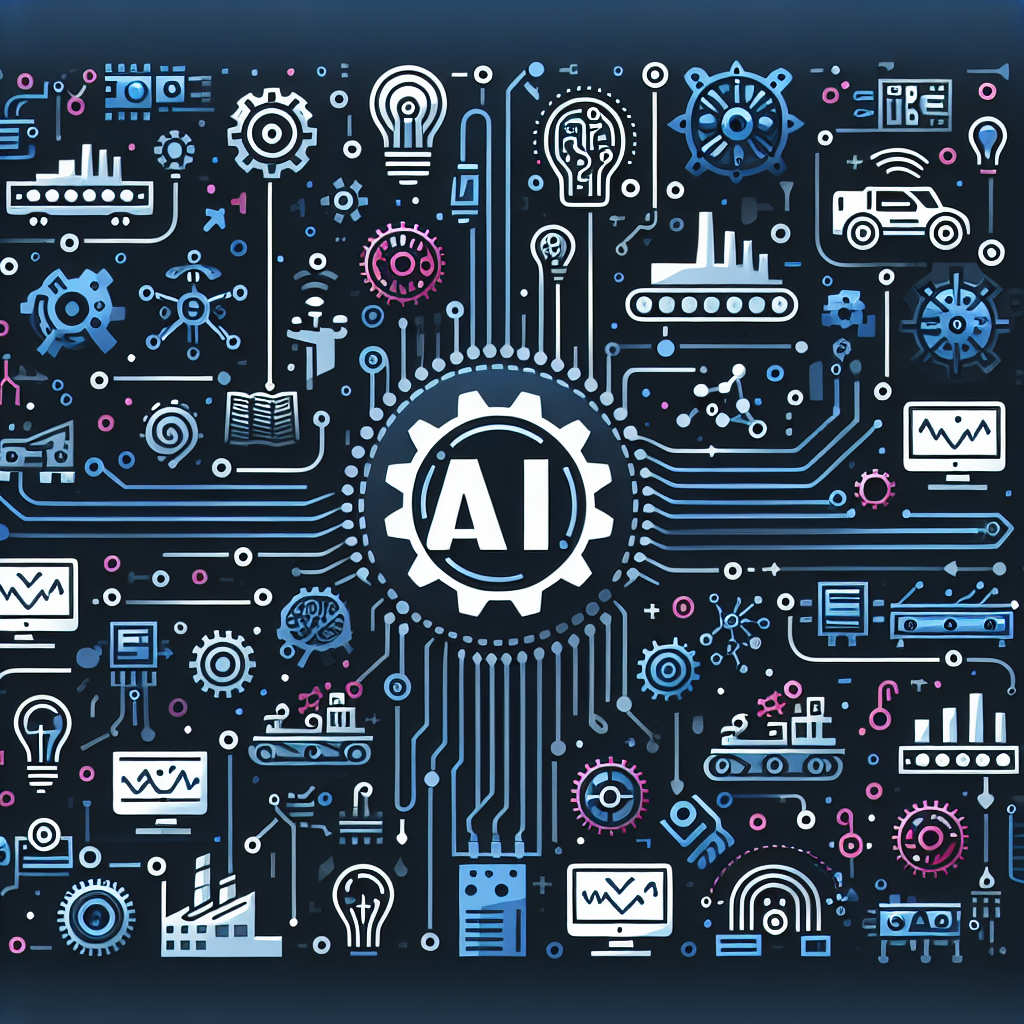The Role of AI in Smart Manufacturing
In recent years, the manufacturing industry has undergone a significant transformation with the adoption of artificial intelligence (AI) technologies. These technologies are revolutionizing the way products are designed, manufactured, and delivered to customers. Smart manufacturing, also known as Industry 4.0, relies on AI to automate and optimize processes, increase efficiency, and improve overall quality. In this article, we will explore the role of AI in smart manufacturing and its impact on the industry.
AI in Smart Manufacturing
AI is being integrated into various aspects of smart manufacturing to streamline operations and drive innovation. Some of the key areas where AI is making an impact include:
1. Predictive Maintenance: AI-powered systems can analyze data from sensors and equipment to predict when machinery is likely to fail. This allows manufacturers to schedule maintenance tasks proactively, reducing downtime and preventing costly repairs.
2. Quality Control: AI algorithms can analyze images and other data to detect defects in products during the manufacturing process. This helps manufacturers identify and address issues before they impact the final product quality.
3. Supply Chain Management: AI can be used to optimize supply chain operations by analyzing data to predict demand, optimize inventory levels, and identify potential risks in the supply chain. This helps manufacturers improve efficiency and reduce costs.
4. Production Planning: AI can optimize production schedules by analyzing factors such as demand, resource availability, and production capacity. This allows manufacturers to maximize output while minimizing costs and lead times.
5. Robotics and Automation: AI-powered robots and automated systems are increasingly being used in manufacturing to perform tasks that are repetitive, dangerous, or require precision. These robots can work alongside human workers to increase productivity and efficiency.
6. Energy Management: AI can be used to optimize energy usage in manufacturing facilities by analyzing data from sensors and equipment to identify opportunities for energy savings. This helps manufacturers reduce their carbon footprint and lower energy costs.
7. Customization: AI can enable mass customization in manufacturing by analyzing customer data and preferences to create personalized products. This allows manufacturers to offer unique products to customers while maintaining efficiency and cost-effectiveness.
8. Digital Twin: AI-powered digital twin technology creates a virtual replica of physical assets, such as equipment and production lines. This allows manufacturers to simulate and optimize processes, identify potential issues, and test new ideas before implementing them in the real world.
Benefits of AI in Smart Manufacturing
The integration of AI technologies in smart manufacturing offers several benefits to manufacturers, including:
1. Increased Efficiency: AI-powered systems can automate and optimize processes, reducing the time and resources required to manufacture products. This leads to increased efficiency and productivity.
2. Improved Quality: AI can identify and address defects in products during the manufacturing process, improving overall quality and reducing the likelihood of recalls or customer complaints.
3. Cost Savings: AI can help manufacturers reduce costs by optimizing production schedules, inventory levels, and energy usage. This leads to lower operating expenses and increased profitability.
4. Enhanced Safety: AI-powered robots and automated systems can perform tasks that are dangerous or hazardous for human workers. This reduces the risk of workplace accidents and injuries.
5. Innovation: AI enables manufacturers to innovate and develop new products and processes by analyzing data and identifying opportunities for improvement. This helps companies stay competitive in the market.
FAQs
Q: How is AI different from traditional manufacturing technologies?
A: AI technologies, such as machine learning and deep learning, can analyze vast amounts of data and learn from it to make predictions and decisions. This allows AI systems to adapt to changing conditions and optimize processes in ways that traditional manufacturing technologies cannot.
Q: Is AI replacing human workers in manufacturing?
A: While AI-powered robots and automated systems are increasingly being used in manufacturing, they are more often used to complement human workers rather than replace them. AI can perform tasks that are repetitive, dangerous, or require precision, allowing human workers to focus on more complex and creative tasks.
Q: What are the challenges of implementing AI in smart manufacturing?
A: Some of the challenges of implementing AI in smart manufacturing include the high upfront costs of AI technologies, the need for skilled workers to manage and maintain AI systems, and concerns about data privacy and security. However, the benefits of AI in smart manufacturing far outweigh these challenges.
Q: How can manufacturers get started with AI in smart manufacturing?
A: Manufacturers can start by identifying areas in their operations where AI technologies can make the most impact, such as predictive maintenance, quality control, or production planning. They can then invest in AI technologies, such as sensors, data analytics software, and AI algorithms, and work with experts to integrate these technologies into their processes.
In conclusion, AI is playing a crucial role in transforming the manufacturing industry and driving the adoption of smart manufacturing practices. By leveraging AI technologies, manufacturers can increase efficiency, improve quality, reduce costs, and drive innovation. As AI continues to evolve, its impact on smart manufacturing is only expected to grow, leading to a more efficient, sustainable, and competitive industry.

